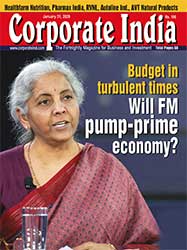Want to Subscribe?
Read Corporate India and add to your Business Intelligence

![]() Unlock Unlimited Access
Unlock Unlimited Access

Finance
Published: May 30, 2023
Updated: May 30, 2023
The Central Board of Direct Taxes (CBDT) has raised the tax exemption limit for leave encashment on retirement for non-government salaried employees to Rs 25 lakh, up from the previous limit of Rs 3 lakh. This relief, announced in the Union Budget 2023 by Finance Minister Nirmala Sitharaman, came into effect on April 1, 2023. The increase in the limit is expected to have significant implications for employees availing leave encashment benefits.
The CBDT, through a circular, specified the new limit of Rs 25 lakh for the cash equivalent of leave salary received by employees at the time of retirement, whether through superannuation or otherwise. This increase provides a considerable relief for non- government salaried employees, allowing them to benefit from higher tax exemptions on leave encashment.
The enhanced exemption limit applies to the period of earned leave credited to employees during their retirement, regardless of whether it is through superannuation or otherwise. It is important to note that private sector employees can avail of this benefit, subject to the conditions listed under section 10 of the Income Tax Act, which deals with incomes exempt from taxation. In contrast, government employees enjoy complete tax exemption on the entire leave encashment amount.
The previous limit of Rs 3 lakh had been in place since 2002 when the highest basic pay was Rs 30,000 per month. The decision to raise the limit to Rs 25 lakh aligns with the government's efforts to reflect the increasing salary levels in the private sector. This step is considered a positive development for non-government employees, as they can now take advantage of the higher tax exemptions available on leave encashment.
Leave encashment refers to the amount of money an employee receives in exchange for leaves that were not availed. In the organized sector, leaves are typically categorized as sick, earned, and casual. Sick and casual leaves usually lapse if not utilized, while earned leaves can be carried forward. However, earned leaves also have an expiration period, based on an organization's policies. The money received through leave encashment is taxable as per applicable tax regulations.
The increase in the tax exemption limit for leave encashment to Rs 25 lakh is a welcome move for non-government salaried employees in India. It provides them with enhanced benefits and tax relief upon retirement. This decision by the finance ministry reflects the government's acknowledgment of the changing salary structures and aims to align tax regulations accordingly. Non-government employees can now leverage the increased tax exemptions to maximize their retirement benefits.

January 31, 2026 - Second Issue

Industry Review

Want to Subscribe?
Read Corporate India and add to your Business Intelligence

![]() Unlock Unlimited Access
Unlock Unlimited Access
Lighter Vein

Popular Stories
Archives
